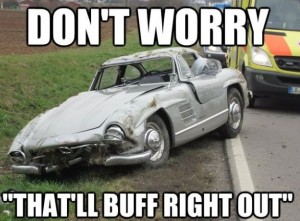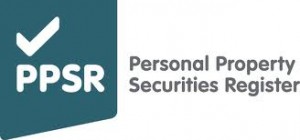It just got easier to buy a used car with confidence – thanks to the PPSR.
Here’s a few sobering stats for the 1.4 million people who buy a vehicle from a private seller every year:
- research in 2010 found that 5% of Australian used car buyers had been misled or deceived about the car they were buying
- the average loss or repair bill as a result was $4,116
- in NSW there is a one in five chance a car offered for sale will be carrying a previous debt that the new owner may have to take on
The Federal Government recognised this problem back in 2007 and put into motion new legislation to simplify the process of checking if you’re buying a car with an outstanding debt or charge against it.
Up until this year, the only way of finding out whether or not a vehicle was ‘encumbered’ with an outstanding debt, was to check up to 70 different Commonwealth, state and territory acts and registers. On 30th January 2012 the Federal Government launched the Personal Properties Securities Register (PPSR), bringing together all of these separate registers into one.
At the launch of the new register, Attorney General Nicola Roxon said “The new national register will let you check that the used goods you are buying, like a car, boat or machinery – almost anything except real estate – don’t have a security interest over them.”
4.7 million records from existing registers like the ASIC Register of Company Charges and the state-based Registers of Encumbered Vehicles (REVS), have been transferred to the PPSR.
What Does A PPSR Check Tell You?
From around $4.00 per search, a PPSR check will tell you:
- the basic vehicle information (make, model colour etc)
- whether any bank or other lender has a recorded financial interest in the vehicle
- whether the vehicle is recorded as stolen
- whether the vehicle has ever been declared a total loss (ie write-off)
The Federal Government recommends you check the PPSR if you are planning to buy a used vehicle or other valuable item. If you are buying from a business you generally will not need to check the PPSR, unless the item the business is selling is not normally sold by that business, and the example they give is a cafe selling a painting valued at more than $5,000, in which case you may want to check.
Cars and boats need to be searched by serial number, for example the VIN or the chassis number for cars and the hull identification number (HIN) for boats. Any other items need to be searched by the name of the seller (referred to as the ‘grantor’ in the PPSR) and you will need to know their name and date of birth as it appears on an official document. To confirm you have conducted the search you should make sure you get the PDF version of the certificate at the end of the process.
Once you’re happy the car you’re looking at is free from debt give us a call to talk about a car loan to help you finalise the sale.





